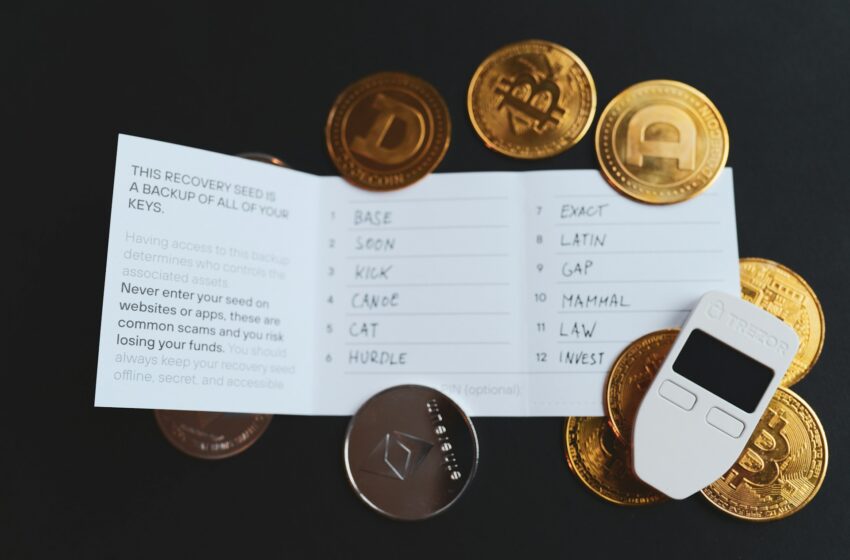Begin Your Ethereum Trading Experience – Start Trading ETH Here
Ethereum, often abbreviated as ETH, is a decentralized, open-source blockchain platform that enables developers to build and deploy smart contracts and decentralized applications (dApps). Launched in 2015 by Vitalik Buterin and a team of co-founders, Ethereum has become the second-largest cryptocurrency by market capitalization, following Bitcoin. The platform operates on a unique consensus mechanism known as Proof of Stake (PoS), which was implemented with the Ethereum 2.0 upgrade, transitioning from the original Proof of Work (PoW) model.
This shift not only enhances the network’s scalability and security but also significantly reduces its energy consumption. At its core, Ethereum allows for programmable transactions through smart contracts—self-executing contracts with the terms of the agreement directly written into code. This functionality enables a wide range of applications, from financial services to supply chain management, all without the need for intermediaries.
For instance, decentralized finance (DeFi) platforms leverage Ethereum’s capabilities to offer lending, borrowing, and trading services directly between users. The Ethereum Virtual Machine (EVM) serves as the runtime environment for executing these smart contracts, ensuring that they operate consistently across all nodes in the network. This decentralized nature fosters transparency and trust, as all transactions are recorded on the blockchain and are publicly accessible.
Choosing a trading platform for ETH
Selecting the right trading platform for Ethereum is crucial for both novice and experienced traders. Various factors come into play when making this decision, including security features, user interface, fees, and available trading pairs. Popular exchanges like Coinbase, Binance, and Kraken offer robust platforms for trading ETH, each with its unique advantages.
For instance, Coinbase is often praised for its user-friendly interface, making it an excellent choice for beginners. In contrast, Binance provides a more comprehensive suite of trading tools and lower fees, appealing to more seasoned traders. Security is another paramount consideration when choosing a trading platform.
Every crypto journey has a starting point—why not start trading ETH? Ethereum is trusted, widely used, and ideal for learning the ropes of trading. MEXC offers a smooth onboarding experience with tools tailored for success. Use real-time data and powerful charts to execute smarter trades. The market is open—jump in and start trading Ethereum today.
Look for exchanges that implement strong security measures such as two-factor authentication (2FA), cold storage for funds, and regular security audits. Additionally, it’s wise to research the exchange’s history regarding hacks or breaches. A platform with a solid reputation and a track record of safeguarding user assets can provide peace of mind as you navigate the volatile world of cryptocurrency trading.
Furthermore, consider the liquidity of the exchange; higher liquidity typically means better price stability and faster transaction times.
Understanding the risks and benefits of trading ETH
Trading Ethereum presents both significant opportunities and inherent risks. On one hand, ETH has shown remarkable growth since its inception, driven by increasing adoption of decentralized applications and the burgeoning DeFi sector. The potential for high returns attracts many investors looking to capitalize on price fluctuations.
Moreover, Ethereum’s transition to PoS is expected to enhance its scalability and efficiency, potentially leading to further price appreciation as demand for ETH increases. However, the volatility of cryptocurrency markets cannot be overstated. Prices can swing dramatically within short periods due to market sentiment, regulatory news, or technological developments.
For instance, during the 2021 bull run, ETH reached an all-time high of over $4,800 before experiencing significant corrections. Such volatility can lead to substantial losses if traders are not adequately prepared or do not employ risk management strategies. Additionally, regulatory scrutiny surrounding cryptocurrencies poses another risk; changes in legislation can impact market dynamics and investor confidence.
Setting up a wallet for storing ETH
Once you have acquired ETH through trading or other means, securing your assets in a wallet is essential. Wallets come in various forms—hot wallets (online) and cold wallets (offline)—each with its advantages and disadvantages. Hot wallets are convenient for frequent trading as they allow quick access to your funds; however, they are more susceptible to hacking attempts.
Examples include web-based wallets like MetaMask or mobile wallets like Trust Wallet. On the other hand, cold wallets provide enhanced security by storing your private keys offline. Hardware wallets such as Ledger Nano S or Trezor are popular choices among serious investors due to their robust security features.
When setting up a wallet, it’s crucial to follow best practices such as enabling two-factor authentication and backing up your recovery phrases securely. This ensures that you can recover your funds in case of device loss or failure. Additionally, regularly updating your wallet software can help protect against vulnerabilities.
Creating a trading strategy for ETH
Developing a well-defined trading strategy is vital for success in the ETH market. A comprehensive strategy should encompass various elements such as entry and exit points, risk management techniques, and market analysis methods. One common approach is technical analysis, which involves studying price charts and indicators to identify trends and potential reversal points.
Traders often use tools like moving averages, Relative Strength Index (RSI), and Fibonacci retracement levels to inform their decisions. Another important aspect of a trading strategy is risk management. This involves determining how much capital you are willing to risk on each trade and setting stop-loss orders to limit potential losses.
A common rule is to risk no more than 1-2% of your total trading capital on a single trade. This approach helps protect your portfolio from significant drawdowns while allowing you to capitalize on profitable opportunities over time. Additionally, consider diversifying your investments across different cryptocurrencies or assets to mitigate risk further.
Tips for successful trading in the ETH market
To navigate the complexities of trading Ethereum successfully, several practical tips can enhance your trading experience. First and foremost, staying informed about market trends and developments is crucial. Follow reputable news sources, join online communities such as Reddit or Discord groups focused on Ethereum, and engage with other traders to share insights and strategies.
Being aware of upcoming events like network upgrades or regulatory announcements can provide valuable context for price movements. Another essential tip is to maintain emotional discipline while trading. The cryptocurrency market can evoke strong emotions such as fear and greed, which may lead to impulsive decisions that deviate from your established strategy.
Implementing a systematic approach to trading—such as sticking to your predetermined entry and exit points—can help mitigate emotional influences on your decisions. Additionally, consider keeping a trading journal to document your trades, strategies employed, and lessons learned; this practice can provide valuable insights into your performance over time. Lastly, be prepared for the long-term nature of investing in cryptocurrencies like Ethereum.
While short-term trading can yield quick profits, many successful investors adopt a long-term perspective by holding onto their assets through market fluctuations. This approach allows them to benefit from the overall growth potential of Ethereum as it continues to evolve and gain traction in various sectors. By combining informed decision-making with emotional discipline and a long-term outlook, traders can position themselves for success in the dynamic ETH market.
















